- Cirque du Soleil’s “Crystal” at Fishers Event Center, a photo preview
- The Gatlin Brothers at Brown Country Music Center
- Kris Kristofferson passes away at 88
- The Magic Summer Tour: A Night of Nostalgia and New Memories
- Vlad Holiday at ACLfest 24: A Sonic Journey Through Indie Landscapes
- Cage The Elephant’s Resilience and Triumph at Noblesville Indiana: Review and Photos
Harry Chapin: Unraveling the Story Behind “Cats in the Cradle”
In musical narratives, few songs have captured the hearts of listeners like “Cats in the Cradle.” Released in 1974, this poignant ballad by singer-songwriter Harry Chapin has become an anthem of fatherhood, resonating with generations and reminding us of the delicate dance between career aspirations and familial bonds. Behind the lyrics lies a captivating story and a tale of personal struggle that sheds new light on the song’s profound impact.
Born in Brooklyn, New York, in 1942, the second of four children, Harry Foster Chapin was raised in a household that fostered a love for music. His mother, Elspeth, was a talented jazz singer, while his father, Jim, was an accomplished jazz drummer. Surrounded by the harmonies that filled his home, Harry developed an innate passion for music from an early age. His parents divorced in 1950, with his mother retaining custody of their four sons, while his father spent much of his time on the road as a drummer for Big Band-era acts such as Woody Herman.
During the early 1970s, armed with a guitar and an insatiable hunger for storytelling, Harry journeyed through the folk clubs of Greenwich Village, honing his craft and captivating audiences with his heartfelt performances. His soulful voice and poetic lyrics breathed life into characters and painted vivid pictures with his songs. He was a consummate performer, captivating audiences with his genuine charisma and ability to bridge the gap between the stage and the hearts of his listeners.
Harry’s music touched the lives of many, but “Cats in the Cradle” would etch his name into the annals of musical history. Released in 1974, “Verities & Balderdash” featured the track “Cat’s in the Cradle,” a song that would go on to define Chapin’s legacy. The song, inspired by a poem written by his wife Sandy, delved into the complexities of father-son relationships, tracing the arc of a child’s longing for his father’s attention and the painful realization that time slips away too quickly.
The inspiration for “Cats in the Cradle” runs deeper than mere artistic imagination. It was rooted in Harry’s own experiences, a reflection of his tumultuous relationship with his father, Jim Chapin. Jim was a highly regarded jazz drummer, and his passion for music left little room for the nurturing presence Harry longed for.
Harry often found himself at odds with his father’s relentless pursuit of success in the music industry. Jim’s demanding schedule and an unyielding dedication to his craft left Harry feeling neglected and yearning for a connection that seemed out of reach. The absence of his father would leave an indelible mark on his own journey as a musician and as a man.
As Harry carved his path in the music world, he was determined to break free from the cycle of familial discord that had haunted him. He poured his heart and soul into his music, weaving together tales of love, loss, and the quest for meaningful connections. And it was through “Cats in the Cradle” that Harry would confront his own inner demons and lay bare the complexities of fatherhood.
The song’s success propelled Harry into the limelight, and he became an influential figure in the singer-songwriter movement of the 1970s. His concerts were intimate affairs, where he regaled audiences with stories that revealed the vulnerability and depth behind his lyrics. With each performance, Harry channeled his pain, his hopes, and his fears, resonating with fans who saw themselves mirrored in his heartfelt words.
Harry Chapin’s passion extended beyond the confines of the recording studio. Deeply committed to social justice and philanthropy, he dedicated a significant portion of his time and resources to fighting hunger and poverty. In 1975, Chapin co-founded the organization World Hunger Year (now known as WhyHunger), which aimed to address the root causes of hunger and provide sustainable solutions.
Harry’s philanthropic endeavors and genuine concern for the well-being of others were evident throughout his career. He utilized his platform to raise awareness and funds for various causes, often performing benefit concerts and advocating for change. Chapin’s passion for social justice was a testament to his belief in the transformative power of music as a catalyst for positive change.
Sadly, Harry Chapin’s journey was cut short on July 16, 1981, when his vehicle was struck from behind by a semi-trailer truck. He was en route to perform at a free benefit concert at Eisenhower Park in East Meadow, New York, that evening. He leaves us a legacy of poignant melodies and profound introspection that extends far beyond his chart-topping hits. His songs continue to resonate with audiences to this day, reminding us of the depth of human emotions and the importance of cherishing the moments that truly matter.
In the years since his passing, “Cats in the Cradle” has remained a steadfast reminder of the enduring power of Harry Chapin’s music. The song’s message continues to reverberate through the decades, urging listeners to pause and reflect on the delicate balance between ambition and family, reminding us to embrace our shared humanity.
Harry Chapin is buried in the Huntington Rural Cemetery in Huntington, New York.
His epitaph is taken from his 1978 song “I Wonder What Would Happen to This World”:
Oh if a man tried
To take his time on Earth
And prove before he died
What one man’s life could be worth
I wonder what would happen
to this world
Harry’s widow Sandy is now chair of the Harry Chapin Foundation, where she continues to pursue Harry’s legacy. His son Josh is involved with the foundation, along with other family members.

https://genius.com/Harry-chapin-cats-in-the-cradle-lyrics

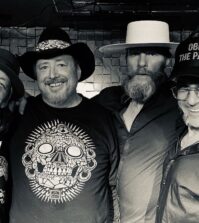

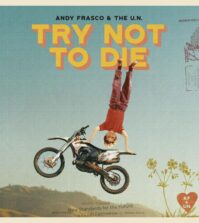



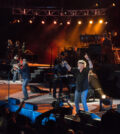
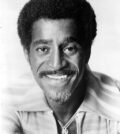
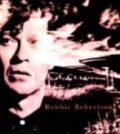







0 comments